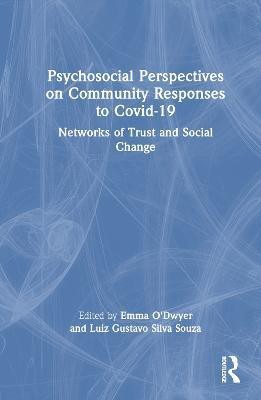Psychosocial Perspectives on Community Responses to Covid-19(English, Hardcover, unknown)
Quick Overview
Product Price Comparison
This highly topical edited book documents the community response to Covid-19 across national contexts, exploring the widespread development and mobilisation of community initiatives and groups. It provides rich analysis of case studies from the Global North and South, including South Africa, the USA, India, China, Mexico, Brazil, Italy, Australia, the UK, Turkey, and Argentina. The Covid-19 pandemic motivated a significant community response globally, with the widespread development and mobilisation of "bottom up" community initiatives and groups. These community responses were an essential yet often unseen and unrecognised means by which people survived the pandemic. This book asks questions such as how were community responses to Covid-19 shaped by national, cultural and political processes and phenomena; how did community responses to Covid-19 interact with public policies, on health, education, and social welfare; and what are the likely political implications of the community response to Covid-19? Discussing the provision of abortion care in Latin America, the support to marginalized communities in Kolkata, and the mobilisation of carnival "krewes" in New Orleans, to give a few examples, the text adopts and develops a novel socio-cultural psychological approach, weaving together contributions from scholars working in diverse disciplinary fields. The text highlights the importance of integrating multiple levels of analysis, including psychological, sociological, and political/ideological, to investigate how communities respond to crises such as the Covid-19 pandemic, and how they can plan for and manage future crises. This is essential reading for academics and students in psychology and the social sciences, as well as policy-makers, charities, and third-sector organisations.


